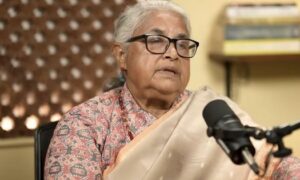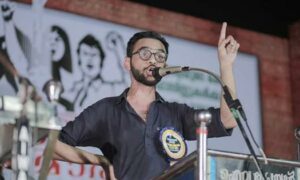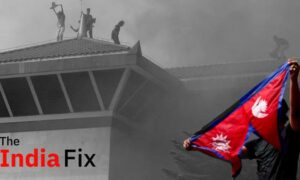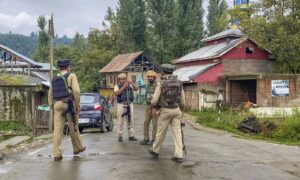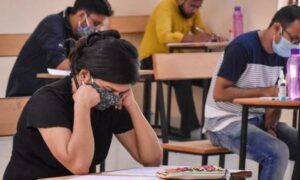
In 2007, contributors to the documentary series Why Democracy? visited several countries to understand various facets of “rule by the people”. Documentary filmmaker and academic Lalit Vachani directed the Indian instalment, In Search of Gandhi. Vachani is now among the producers of Election Diaries 2024, a set of documentaries about the Lok Sabha election that gave the Narendra Modi-led Bharatiya Janata Party a third term in power.
Election Diaries 2024 revisits one of the most divisive, closely fought and crucial elections in recent memory. While the election’s outcome is known, the documentaries try to make sense of the BJP’s inability to win a majority in the Lok Sabha. This required the Hindutva party to form a coalition government.
The themes of creeping majoritarianism, open Islamophobia and the BJP’s threats to rewrite the Constitution hang over stories from Kerala to Bengal and Karnataka to Meghalaya. The nine directors capture the pageantry, the rallies and speeches, the issues that are debated but also sidestepped.
Vachani and Srirupa Roy serve as producers and Ridhima Mehra and Tulika Srivastava as executive producers for the project, which was backed by the Centre for Modern Indian Studies at the University of Gottingen in Germany. Six of the nine titles are being screened as a package at the International Documentary & Short Film Festival of Kerala (August 22-27) in Thiruvanathapuram.
A seventh documentary, Sangama, is the non-competitive Focus section.
The six-film package includes Vachani’s The Battle Royale, about Trinamool Congress party leader Mahua Moitra’s re-election campaign in Krishnanagar in Bengal. Vachani and his crew follow an embattled Moitra, recently suspended from Parliament and on the backfoot because of industrial-scale trolling about her personal life.
The Battle Royale is an absorbing depiction of how modern elections are fought. Even as Moitra appeals to Trinamool’s traditional base, a young team of volunteers closely tracks data points and social media trends.
Energetic but visibly strained too, Moitra embodies the anxiety among Opposition leaders across the country trying to halt the BJP juggernaut. Some of the complaints voiced by the voters are pertinent to the election but echo beyond that specific event too.
The notion of the battle for the Lok Sabha being a symbol of a wider and longer war is strongly present in Sunanda Bhat’s Sangama (Coming Together). Bhat profiles Eddelu Karnataka, the coalition of citizens’ groups and progressive movements that have united to challenge Hindutva, unjust policies and widespread ennui among secular voters.
The march of Hindutva is seen as inexorable. But the people behind Eddelu (meaning wake-up call) prove that door-to-door campaigning and sustained debunking of malicious propaganda can have an impact.
The volunteers turn the spotlight on long-standing grievances about underdevelopment, casteism and communalisation. The mission isn’t for this election alone but to create an active citizenry, an Eddelu organiser says.
Bhat’s observational film includes many voices and faces of the people in whose name politicians rule. There’s a lovely scene of a woman bathing her infant son. Another woman at a Congress rally says that she is there because she is a fan of Priyanka Gandhi.
While rampaging Hindutva is the biggest worry, the Congress party’s shortcomings are highlighted too. When the BJP fails to reach its target of “400 paar” (more than 400 seats in a Lok Sabha of 543 members), a volunteer jokes that the BJP did won 400 seats but lost 28 per cent of the share to GST.
Another viewpoint on Hindutva-tinged nationalism emerges in Crescent in the Saffron Sky, in which Alishan Jafri and Omair Farooq follow All India Majlis-e-Ittehadul Muslimeen leader Asaduddin Owaisi. The film examines Owaisi’s delicate balancing act between identifying himself as a Muslim representative and countering the BJP’s frequent attempts to box him as an purveyor of identity politics.
Owaisi asserts that political empowerment through elections is the only way for Muslims to be counted, especially at a time when they are under brutal attack. Should Muslims simply vanish or become ghosts, Owaisi rhetorically asks.
Students at the Hyderabad Central University debate Owaisi’s declarations. How can Owaisi be termed communal at a time of ascendant Hindutva or when so-called secular parties do not speak about Muslims at all, a student asks. They also reject the theory that Owaisi’s party acts as the BJP’s “B-team” and splits the vote of other parties to benefit the Hindutva outfit.
Politics over sub-national identity also drives Amit Mahtani’s Inside Outside, about the electoral fight between the state’s National People’s Party and the Voice of People’s Party over issues that include tribal empowerment and the Citizenship Amendment Act. In The Miniscule Minority, Avijit Mukul Kishore looks at the absence of queer rights as a campaign issue in the election.
State of Hope by Anjali Monteiro and KP Jayasanker follows Left Democratic Front candidate TM Thomas Isaac’s campaign in Pathanamthitta in Kerala. Thomas serves as a mouthpiece for a tribute to Kerala’s singular experience with social reform movements.
Greeshma Kuthar and Manju Priya K’s Our Symbol Is? examines the exploitation of cultural identity for political gains. Our Symbol Is? looks at how Tamil identity, while serving as a reliable bulwark against Hindutva, sometimes fails the people it is supposed to be championing. Among the subjects in the film are Dalits, whose daily experiences with brutal casteism undercut any claims of a unified Tamil consciousness.
The filmmakers also meet folk artists who are recruited to perform at election-related events. They speak about waiting for hours for leaders to arrive and delayed payments. The chasm between stump speech and lived reality is stark.
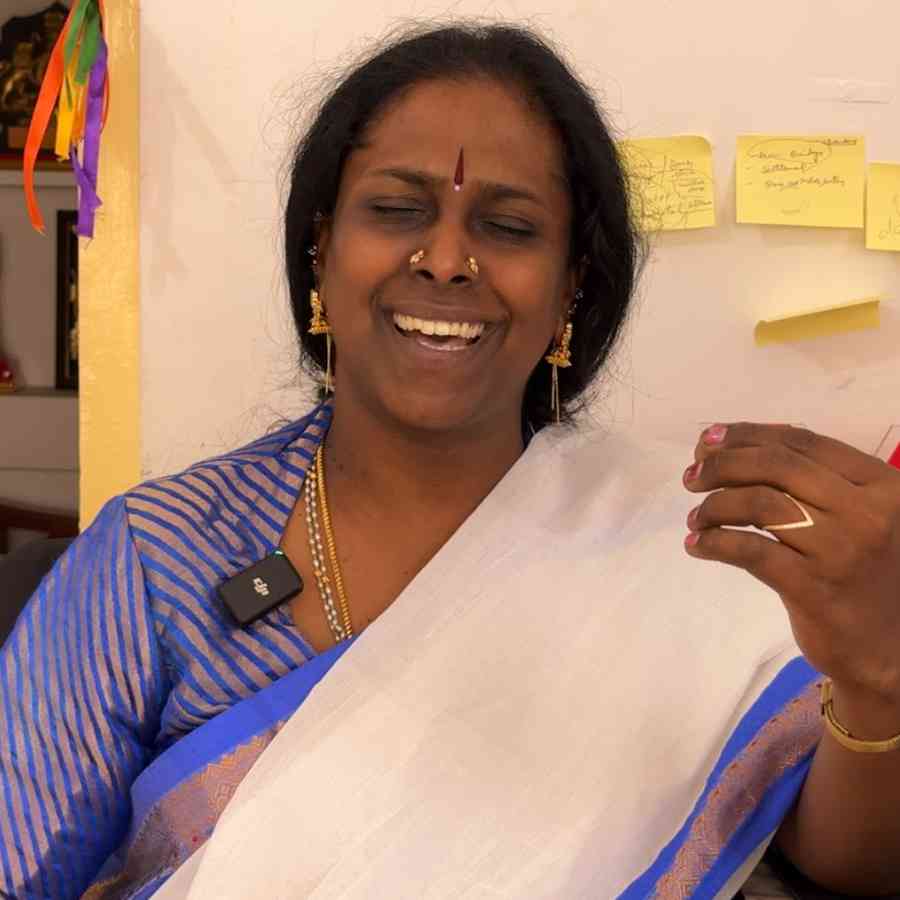
Of the two instalments in Election Diaries 2024 that are not being shown at IDSFFK, Prateek Shekhar’s Ruke Na Jo explores a CPI (ML) candidate’s failed bid to beat his rivals in Bihar. Pankaj Rishi Kumar’s Gola Dreams follows a local television journalist trying to stand up to virulent messaging in Uttar Pradesh’s Lakhimpur Kheri district.
By looking back on the Lok Sabha election, what lessons can be learnt today? Across the films, there are assertions about people’s power preventing an outright BJP victory and curbing the party’s flagrant anti-Muslim campaigns. But given the BJP-led regime’s efforts since then to further undermine government institutions, the functioning of Parliament and the legitimacy of Opposition leaders, the green shoots of hope highlighted in Election Diaries 2024 already seem to have been crushed.
In Sangama, The Battle Royale and, to a lesser extent, Crescent in the Saffron Sky and Our Symbol Is?, there are insights into rigid faultlines as well as new opportunities. An Eddelu Karnataka volunteer perfectly captures the challenges involved in reclaiming Constitutional values.
The BJP’s defeat in Karnataka in the state Assembly elections in 2023 as well as the party’s inability to dominate the Lok Sabha in 2024 were signs of a “quiet and introspective” resistance, one that needs continuous attention, the volunteer says.
The dance of democracy involves intricate footwork – a point that emphatically comes through in Election Diaries 2024 despite its uneven quality.
This article first appeared on Scroll.in
📰 Crime Today News is proudly sponsored by DRYFRUIT & CO – A Brand by eFabby Global LLC
Design & Developed by Yes Mom Hosting

